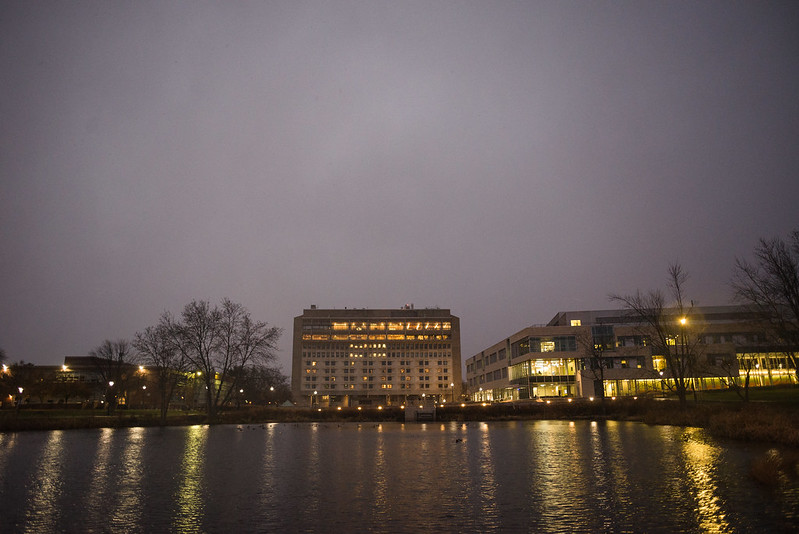On Oct. 23, the University of Massachusetts Commonwealth Honors College hosted a talk titled “Why Tibet Matters” with Sikyong Penpa Tsering, democratically elected political leader of the Central Tibetan Administration, popularly known as the Tibetan Government-in-exile.
As the leader of a government-in-exile, the Sikyong must visit all the Tibetan communities in the diaspora, to keep connected with his constituents.
Throughout history Tibet and China have each had their moments of power, taking turns controlling Central and Eastern Asia along with other powers like the Mongol Empire.
Tibet had been independent from China for nearly 40 years when it was invaded and annexed in 1950. The Seventeen Point agreement was signed a year later, which gave China control of Tibet while promising to protect their autonomy and culture. This document is considered invalid by Tibetans who cite they were under duress.
Since 1959, the Sikyong and the Dalai Lama have lived in exile along with a huge diaspora of Tibetans who are primarily based in Dharamshala, India but reside all over the world.
“If it was not for the Indian Government we would not be where we are today,” Tsering said.
The safety of Tibetan culture is one of the most pressing concerns for the Sikyong, as it has been jeopardized by the Chinese government. Children in Tibet are not allowed to study in traditional Buddhist schools and cannot receive formal training in Tibetan.
“Right now, we have about a million Tibetan children being put in colonial style boarding schools where you are taught only in Mandarin,” Tsering said. “When [Tibetan youth] come home they are withdrawn, they don’t speak the Tibetan language. They only speak the Chinese language.”
The aim and effect of this is the “erasure of the identity of the Tibetan, starting with the language,” Tsering said.
This has been demonstrated through China’s treatment of their Uyghur population. China wants one identity and one language for its’ people and if a group does not fit into its framework then it is systematically diluted and, using Tsering’s words, “erased.”
This state-sponsored erosion of the Tibetan culture works hand-in-hand with its “gridlock” system of suppressing political activism.
Because Tibetans believe in the power of non-violence, many have been driven to self-immolation — the act of setting oneself on fire — to protest Chinese occupation.
“There was a time when one single man burned himself to death in Vietnam or one man burned himself to death in the Czech Republic and it would become international news,” Tsering said.
“There have been 157 self-immolations in Tibet so far, hoping against hope that the Chinese government will pay some attention to their plight. Or hoping against hope the international community will come to the rescue, but to no avail.”
Last February, Tibetan rising star singer Tsewang Norbu died from self-immolation in front of Potala Palace in Lhasa, Tibet.
Those who take up political activism do so at the risk of seeing their family members imprisoned. “It’s not just you who suffers, it’s all your near and dear ones who suffer because of your actions,” Tsering said.
“Today I get asked many times about ‘why we don’t hear from Tibet anymore,’ that is because of this grid-lock system,” Tsering added. “Chinese laws are very ambiguous, they can arrest you at any level. They can arrest people at any time in the name of state security and social stability.”
That being said the Sikyong and the Dalai Lama are seeking a calmer solution than outright rebellion against China. In fact, they do not seek independence, only peaceful co-existence.
As far as international intervention goes both Sikyong Tsering and Stellan Vinthagen, the event organizer and UMass professor of sociology, point to the reliance the western world has on the Chinese economy.
“I think part of the problem for Tibet is that China is so important for the world economy. So, there are a lot of countries that would support self-rule and human rights that ignore it because they won’t have trade relations,” Vinthagen said.
The Sikyong added, “Every single country in North and South America buy more [than they export] to China. Every single country in Europe is buying more from China. So, the question is who needs who more?”
“Tibet is the roof of the world… leaving beside politics and all that what concerns the whole region is the environment of the world,” Sikyong said, regarding the importance of Tibet to the world.
As Tibet is the highest region on Earth many important rivers originate there. China is working on a new “mega” dam in Tibet that would have serious implications for countries further downstream.
“Colonization is still something that is going on in the world, and that people are struggling against. And there are more places than Palestine that need our support,” Vinthagen said.
Micah McCarthy can be reached at [email protected].



















